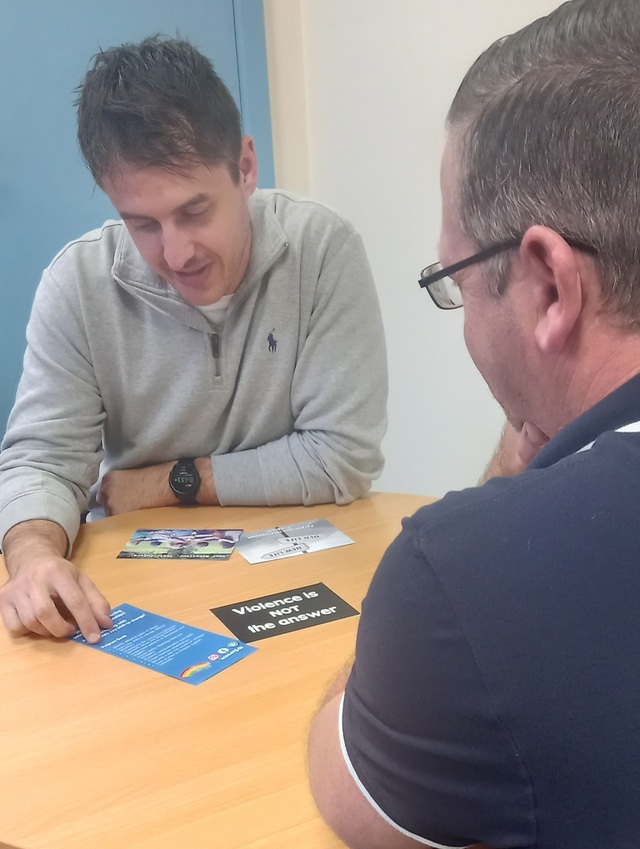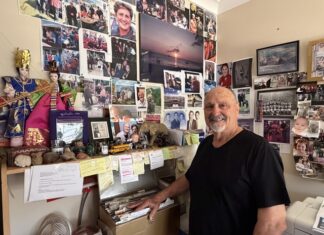PORT PIRIE – Adam Tee is passionate about his work as a men’s counsellor with Uniting Country SA, based in Port Pirie.
Mr Tee has been working in the program for about nine years, but it has been running for around 15 years.
The Perpetrator Intervention Program for the Yorke and Mid North started as a pilot project sitting under the umbrella of the services homelessness program and counsellors like Mr Tee have a mixture of clients from self referrals as well as those who are directed from other avenues.
“Referrals come in from everywhere, from our own homelessness services, from SA Police, from lawyers from DCP (Department of Child Protection); anywhere that the client is identified as in need in that area,” Mr Tee said.
“We are open to that and we just send out a referral form or we get a quick email in.”
He said that from the initial point of contact with the service he will meet with the client to sit down and talk about what the program is about and what is going on for that client.
“We talk about our expectations, their expectations and responsibilities and what other services they have been referred to; and then we go from there,” he said.
The eight to 12 week program has had great success, more so when the clients are engaged and understand what is going on in their lives.
“Part of that is having ownership of the problem, acknowledging the problem and moving forward with it, not saying that it is everybody else’s fault, Mr Tee said.
“Having said that, it’s not one size fits all; some people don’t get to that point and I try to direct them to other options for support like more general counselling.”
Clients can also self refer back to the program if they find they are struggling or reverting back to behaviours from their past.
Mr Tee believes that people can change the way they relate to others.
“Change happens all the time around us, everything changes and we are used to that,” he said.
“To have the opinion that a person can’t change; I don’t think so.
“We all have people in our lives where the relationship has changed, it might be with your brother or your mum, you don’t see them for a while and the relationship changes.
“I don’t believe you can say that everything changes and shut down one aspect of it.”
Mr Tee said he works with clients around identifying what domestic violence is, what their relationship looks like and what they are going through.
“I try to give them information they might not have, they might think their behaviour is normal, this is what they learned from their parents, this is how my emotions come out, that’s how I do it,” he said.
“Hopefully during that process they can identify some of their own behaviours, and that’s where the ownership comes in, and accountability.
“They start to think, well, I am doing some of that, so I do need to change that.
“Then we look at aspects of their lives that could be stressful or triggering, if they have a history of aggression, and what their childhood was like.
“The only thing you can change is yourself; we look at those triggers and different strategies to address those triggers without resorting to violence.”
He said there were many interpersonal skills that can get missed along the way in life, such as active listening.
“We are trying to unload these behaviours of years in an hour a week, it is a lot,” Mr Tee said.
“I’m not there to be the mate, I’m there to challenge them.”
Trish Rollins heads up the homelessness program in Port Pirie and said the entire community had a role to play in changing the conversation around domestic violence.
“We tend to put a lot of emphasis on schools and teachers have a huge role with our young people,” she said.
“Teachers can be mentors and talk about respectful relationships but this is a society and community problem, just as homelessness is.
“We all need to stand up, and speak out about domestic violence and call it out.
“If we see it, we need to call it out, while taking care of ourselves.”
Team Leader Kurtis Edwards supports Mr Tee, as well as being on hand to debrief and help with problem solving.
“It’s about making sure that our attitudes are respectful and appropriate; role modelling that behaviour,” Mr Edwards said.
“When it’s safe to do so, call out those things, those little disrespectful comments.
“There’s a big role for men to role model that respectful behaviour.
“One of our values is around restlessness for change and a restlessness for what could be.
“It can just take one little thing for that story to be different, and we see that in the homelessness space and in the perpetrator space.
“We meet people where they are at, and that time could be the one time that creates change.”
Uniting Country SA Perpetrator Intervention Program phone 1300 067 777.
MensLine Australia’s phone and online counselling call 1300 789 978.
If you or someone you know is in crisis and needs help now, call triple zero (000).
Uniting Country SA Domestic Violence victim support service 8633 8600.
National crisis line 1800 RESPECT








